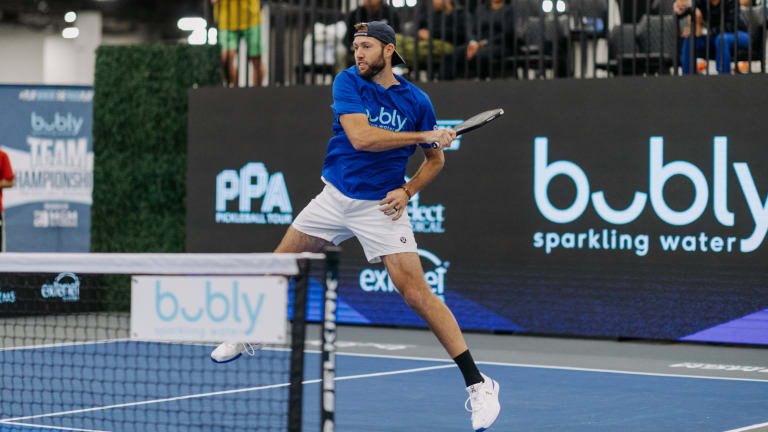NEW YORK—“Pickleball is where tennis players go to die,” Andre Agassi said, with a smile, at an exhibition this spring.
Does that sound harsh, or a bit morbid? Agassi was voicing the traditional tennis opinion of its upstart little-brother sport. Only when you can’t play tennis anymore would you consider picking up a pickleball paddle and dinking a wiffle ball around a mini-court, right?
Jack Sock, it seems, has another, slightly less extreme, idea: What if pickleball is where pro tennis players go when they retire?
The 30-year-old Kansas native’s tennis career came to an early and quiet end on Court 12 at the US Open on Thursday. That’s where he played and lost two doubles matches, one with John Isner in the afternoon, and the other with Coco Gauff in the evening. Sock served for the match with Isner, and served for the second set with Gauff, but he was broken both times. After the second defeat, he gave the big and supportive crowd a tearful wave good-bye.
